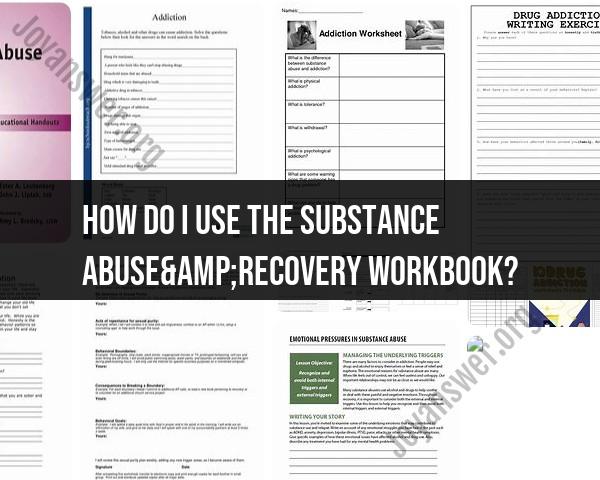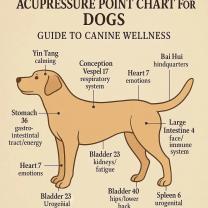How do I use the substance abuse&recovery workbook?
A substance abuse and recovery workbook is a valuable resource that can provide structure and guidance for individuals seeking to overcome addiction and maintain a life of recovery. Here are some general steps and tips for effectively utilizing a substance abuse and recovery workbook:
Read and Understand the Workbook:Begin by thoroughly reading the workbook. Understand the purpose of each section, the exercises, and the overall structure. Familiarize yourself with the goals of the workbook, which may include self-reflection, goal-setting, and skill-building.
Set Realistic Goals:Identify your specific goals for using the workbook. Whether your aim is to achieve abstinence, develop coping strategies, or enhance your overall well-being, having clear goals will help you focus your efforts.
Create a Schedule:Establish a schedule for working through the workbook. Consistency is key, so allocate dedicated time each day or week to engage with the material. This could involve completing a certain number of exercises or chapters within a given timeframe.
Complete Exercises Thoughtfully:Take the time to thoughtfully complete each exercise. Reflect on your responses and be honest with yourself. The workbook is designed to encourage self-discovery and insight, so the more effort you invest, the more beneficial the process will be.
Review and Reflect:Periodically review what you've written and reflect on your progress. Note any changes in your thoughts, feelings, or behaviors. Use this reflection as an opportunity to celebrate achievements, identify challenges, and adjust your goals as needed.
Seek Support:Consider involving a therapist, counselor, or support group in your journey. Discussing your workbook exercises with a professional or in a group setting can provide additional perspectives, insights, and support.
Connect with Others:If possible, connect with others who are using the same workbook. Share experiences, insights, and challenges. Peer support can be a powerful motivator and a source of encouragement.
Practice New Skills:Many workbooks include skill-building exercises. Practice these skills in real-life situations. Whether it's communication, stress management, or relapse prevention skills, actively apply what you've learned to enhance your coping abilities.
Be Patient and Kind to Yourself:Recovery is a process, and change takes time. Be patient with yourself and acknowledge your efforts. Recognize that setbacks may occur, but they do not define your journey. Learn from them and continue moving forward.
Celebrate Achievements:Acknowledge and celebrate your achievements, no matter how small. Rewarding yourself for progress can reinforce positive behavior and motivate continued effort.
Remember, the substance abuse and recovery workbook is a tool to support your journey, but the real work happens through your commitment and active participation in the process of recovery. If you find yourself struggling or feeling overwhelmed, consider seeking professional help to ensure you have the support you need.
Sure, here are the answers to your questions about the Substance Abuse & Recovery Workbook:
How can the Substance Abuse & Recovery Workbook be utilized effectively?
The Substance Abuse & Recovery Workbook can be utilized effectively in a variety of ways, including:
- Individual therapy: The workbook can be used as a self-guided therapy tool for individuals who are struggling with substance abuse. The exercises and activities in the workbook can help individuals to understand their addiction, identify triggers, and develop coping mechanisms.
- Group therapy: The workbook can be used as a resource for group therapy programs. The exercises and activities in the workbook can help group members to share their experiences, support each other, and learn from each other.
- Supportive care: The workbook can be used as a supportive care tool for individuals who are in recovery from substance abuse. The exercises and activities in the workbook can help individuals to maintain their sobriety and prevent relapse.
What are the sections or exercises within the Substance Abuse & Recovery Workbook?
The Substance Abuse & Recovery Workbook is divided into several sections, each of which focuses on a different aspect of substance abuse and recovery. The sections include:
- Understanding Addiction: This section provides an overview of addiction, including its causes, symptoms, and consequences.
- Assessment and Planning: This section helps individuals to assess their substance use and develop a plan for recovery.
- Changing Your Thinking: This section helps individuals to identify and challenge negative thoughts and beliefs that contribute to addiction.
- Coping with Cravings and Triggers: This section provides strategies for coping with cravings and triggers for substance use.
- Building a Support System: This section helps individuals to identify and build a strong support system of friends, family, and other allies.
- Maintaining Sobriety: This section provides strategies for maintaining sobriety and preventing relapse.
In addition to the sections, the workbook also includes a number of exercises and activities that help individuals to apply the concepts they have learned. These exercises and activities can be done individually or in a group setting.
Are there specific instructions or guidelines for using the workbook in a group setting?
Yes, there are specific instructions and guidelines for using the Substance Abuse & Recovery Workbook in a group setting. These guidelines are designed to help group leaders to facilitate effective and productive group discussions. The guidelines include:
- Setting clear expectations for group participation.
- Creating a safe and supportive environment for sharing.
- Encouraging active participation from all group members.
- Respecting individual differences and experiences.
- Focusing on the present and the future, rather than the past.
- Providing resources and support for group members.
Can the Substance Abuse & Recovery Workbook be used for self-guided therapy?
Yes, the Substance Abuse & Recovery Workbook can be used for self-guided therapy. The workbook is written in a clear and concise style that is easy to understand, and it includes a number of exercises and activities that can be done independently. However, it is important to note that self-guided therapy may not be appropriate for everyone. Individuals who are struggling with severe addiction or mental health problems may benefit from seeking professional help.
Are there reviews or testimonials from individuals who have used the Substance Abuse & Recovery Workbook?
Yes, there are a number of reviews and testimonials from individuals who have used the Substance Abuse & Recovery Workbook. These reviews and testimonials are generally positive, with many individuals reporting that the workbook has been helpful in their recovery journey. Here are a few examples of what people have said about the workbook:
- "This workbook has been a lifesaver in my recovery. It has helped me to understand my addiction and develop the tools I need to stay sober."
- "I am so grateful for this workbook. It has helped me to change my thinking and cope with my cravings."
- "This workbook is a great resource for anyone who is struggling with substance abuse. It is full of helpful information and exercises."
Overall, the Substance Abuse & Recovery Workbook is a valuable resource for individuals who are struggling with substance abuse or who are in recovery. The workbook can be used effectively in a variety of settings, including individual therapy, group therapy, and self-guided therapy.












